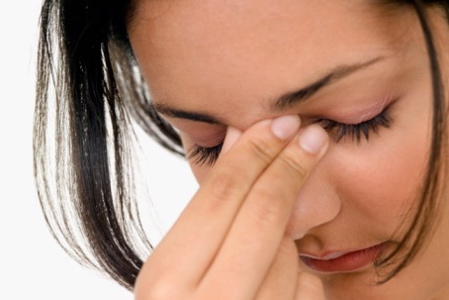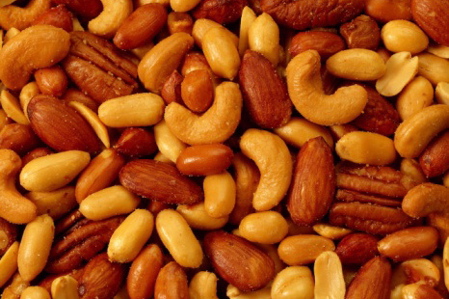Tips for Balancing Your Hormones
0 Comments
Get Your Hormones in Check Now
Nobody wants to be a slave to their hormones and simple steps can make all the difference. Find out what you need to be doing to keep your hormones in check. Photo: Getty Images

Keep Your Blood Sugar Stable
The number one cause of hormone imbalance is consuming too much refined flour and sugar, which causes our blood sugar levels to spike and crash, which in turn impacts the production of our hormone insulin. To keep insulin balanced you want to eat in a way that keeps blood sugar levels stable. This is achieved by eating a lean protein – turkey, chicken, fish, nuts, beans – and a complex carbohydrate – vegetables or high fiber fruit – every 2-3 hours. Eliminate white flours, sugar and artificial sweeteners

Harmful v. Helpful Fats
Fats can work for you or against you, depending on quantity and quality. When you eat carbs with fat, the conversion of carbs to blood sugar occurs at a slower rate. However, too much fat in a given meal will interfere with the function of insulin. Eating a little fat at every meal is what works best. Healthy fats such as those found in olive oil, fish and flaxseed help to balance hormones. Saturated fat should be eaten in moderation, but trans fat should be eliminated altogether. Trans fat is manmade and the body has no physiological need for it

Restoring Harmony with Food
When grocery shopping, fresh food should be the majority of what you buy, and packaged food should be the minority. Top foods to incorporate into your diet to balance hormones, include: fish for healthy omega-3 fats, flax also for omega-3 fats, nuts for healthy fats and fiber, lean protein to benefit blood sugar and reverse or prevent insulin resistance, vegetables – variety rules, moderate amounts of fruit –particularly apples and berries for their high fiber and less impact on blood sugar, legumes and whole grains for fiber that slows down digestion and stabilizes blood sugar levels, extra-virgin olive oil and vinegars.”

Stress Less
Another key hormone that is important to keep stable is cortisol, our stress hormone. A little stress is good because it helps us deal with the unexpected. However, chronic stress puts cortisol on high demand and eventually it will stop production altogether. It will then call on our sex hormone progesterone to make more cortisol, which will deplete progesterone. You can see how an imbalance can occur

Stress Management
Daily stress management is important for hormone balance. Some techniques include taking a break for ourselves every day, such as going for a short walk to get out of the office. Other techniques include setting boundaries when it comes to stressful people and relationships; unplugging from the digital world, especially in the evening; learning to delegate or eliminate extraneous tasks; instead of feeding into drama, use a wet towel approach with difficult people; doing some gentle exercises, taking deep breaths and managing money.”

Exercise to Restore and Maintain Hormone Imbalance
Exercise provides many health benefits, but it also helps restore hormone balance. For one it keeps blood sugar levels stable by counteracting the spikes and crashes that trigger hormone imbalance. It relieves stress and improves mood by triggering the production of endorphins. It also helps control weight and appetite. However, it is important not to overdo it because too much exercise can put additional stress on the body, which impacts cortisol levels.”

Fill in Dietary Gaps with Supplements
Dietary supplements aren’t a substitute for a healthy diet, but they help to fill in dietary gaps and provide additional support in order to face the environment and life’s stresses. For hormone function, a good quality multivitamin, mineral and antioxidant combination lays the foundation for balance. It should be accompanied with fish oil and CoQ10, which aren’t found in multivitamins. And for optimum health, you will need magnesium and vitamins C and D in greater quantities than what is found in multivitamins

Reduce Daily Exposure to Toxins in our Food
Environmental toxins are found in the food we eat, such as pesticides, antibiotics, chemicals and hormones and they can negatively impact the balance of our hormones. These toxins can mimic estrogen, causing a disturbance in our natural production. To reduce exposure, try buying plant foods with the highest amount of pesticides organically such as apples, pears, celery, spinach, peaches, strawberries, potatoes, lettuce and others. Try to not buy food in cans, especially acidic foods like soda and tomatoes because the BPA in cans can leach onto our food.”

Reduce Daily Exposure to Toxins in Everyday Household Products
Just like our food supply, environmental toxins are found in the everyday household and beauty products we use and they can negatively impact the balance of our hormones. Many beauty and household products contain synthetic fragrance, such as perfumes, scented candles, lotions, makeup, cleaners and bath products, which contain phthalates and parabens. Buy unscented lotion or organic oils instead of scented candles, and look for paraben-free hair and beauty products. For household cleaners, generally products that are good for the environment tend to be pretty safe for humans
Add a CommentComments
There are no comments yet. Be the first one and get the conversation started!